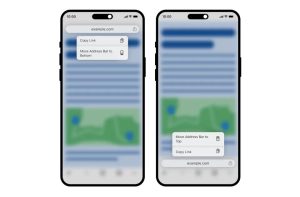In a surprising turn of events, Apple revealed this week its plan to provide RCS support beginning in 2024. This decision marks the resolution of one of the lengthiest and perplexing conflicts between iOS and Android. If you find these details unclear, fret not; we’re here to elucidate the potential transformations associated with Apple embracing the GSMA’s advanced messaging protocol.
What is SMS?
The Short Message Service (SMS) stands as one of the most widespread messaging protocols globally, originating in the early days of mobile technology. In December 1992, Neil Papworth, an engineer at Vodafone, sent the inaugural SMS text message, extending holiday wishes to his boss with a “Merry Christmas.” By the beginning of 2011, around 80 percent of mobile phone users worldwide, totaling an estimated 3.5 billion people, engaged in sending SMS messages monthly.
However, in 2023, this standard exhibits some notable limitations. SMS messages are confined to 160 characters, lacking the capacity for including photos, videos, audio, or GIFs. To address this, cell phones have long relied on Multimedia Messaging Service (MMS), a supplementary protocol with its own set of technical constraints, including modest message size limits. Additionally, SMS lacks support for end-to-end encryption.
Despite feeling outdated in the age of dominant instant messaging platforms, SMS possesses a distinctive advantage: it utilizes the carrier’s mobile network, eliminating the need for a data plan to utilize the technology. This characteristic has positioned SMS as a fallback option for more advanced protocols, including iMessage.
What is RCS?
RCS, which stands for Rich Communication Services and is occasionally marketed as “Advanced Messaging,” is often positioned as the next-generation successor to SMS and MMS. It allows users to access features that were traditionally exclusive to over-the-top messaging platforms like WhatsApp.
The RCS Universal Profile incorporates full support for read receipts and typing indicators. It facilitates effective group chats and enables users to share high-resolution images, videos, and audio clips. Google’s RCS implementation, as of earlier this year, also defaults to end-to-end encryption (E2EE) for both one-on-one and group chats.
In contrast to SMS texts, RCS messages are transmitted over a mobile data connection or Wi-Fi link, with SMS serving as a fallback option. Consequently, the older protocol is likely to persist for the foreseeable future.
It’s crucial to note that RCS is neither intended nor designed to replace or compete with instant messaging apps. Essentially, RCS serves as a communication protocol between mobile telephone carriers and between a phone and carrier. Utilizing RCS doesn’t necessitate signing up for a new service. As long as your phone and carrier support RCS, and you’re using a compatible app like Messages by Google, you can harness all the benefits offered by the protocol—provided, naturally, that the individuals you’re messaging meet the same requirements.
How does iMessage fit into all this?
Apple introduced iMessage in June 2011, just a few months before the passing of Steve Jobs later that year. Unlike RCS, iMessage is a proprietary messaging protocol exclusively controlled by Apple and is, except for some unofficial workarounds, limited to iPhone, iPad, Apple Watch, and Mac devices. Apple plans to incorporate support for RCS in its Messages app starting in 2024. Currently, the two protocols do not have interoperability, meaning Apple’s Messages app defaults to SMS/MMS when users attempt to send texts and media files to Android phone users.
From the perspective of an iMessage user, it may seem like Android users are confined to a dated messaging era, although this situation is not their fault. Due to iMessage relying on SMS/MMS for communication with Android, media files end up pixelated, and features like read receipts, typing indicators, and inclusive group chats involving both iPhone and Android users become unattainable.
How did we get here?
Although work on RCS predates the introduction of Apple’s iMessage, the protocol faced a significant hurdle that impeded its widespread adoption. RCS is a collaborative initiative involving various stakeholders, with the GSMA, a trade body representing the broader mobile communications industry, playing a key role. In 2015, Google assumed a more active role in advancing RCS with the acquisition of Jibe Mobile. While Google serves as the linchpin for the RCS ecosystem using Jibe’s technology as a foundation, the company initially struggled to align all stakeholders toward a common objective.
The early stages of RCS were marked by false starts, with some carriers, including a consortium comprising AT&T, T-Mobile, and Verizon, forming a short-lived joint venture to promote the protocol. Eventually, they aligned themselves with Google. Even Samsung pursued its own course initially before ultimately agreeing to make Messages by Google the default messaging app on phones in the US.
Given the disarray in RCS’s early days, Apple had little incentive to adopt the protocol, especially when faced with a perceived stumbling competitor. As recently as last year, Apple CEO Tim Cook dismissed the idea of prioritizing RCS, stating that there was minimal demand from users for such integration. His response was a concise “Buy your mom an iPhone.”
However, in the same year, the European Union enacted the Digital Markets and Services Act (DMA), requiring “gatekeepers” to refrain from favoring their systems or limiting interoperability with third parties. Apple, meeting specific financial and usage criteria, falls under the category of gatekeepers according to the law.
In early November, Google lodged a complaint with the European Commission, asserting that iMessage violates the DMA. Apple’s announcement of RCS support coincided with the deadline for companies to challenge the DMA at the EU’s General Court. Subsequently, the EU revealed that Apple is contesting its DMA assignments. While the details of Apple’s complaints are undisclosed, recent reports suggest that the company plans to challenge the gatekeeper designations of both iMessage and the App Store.
Does Apple’s support of RCS mean the end of green text bubbles on iPhone?




